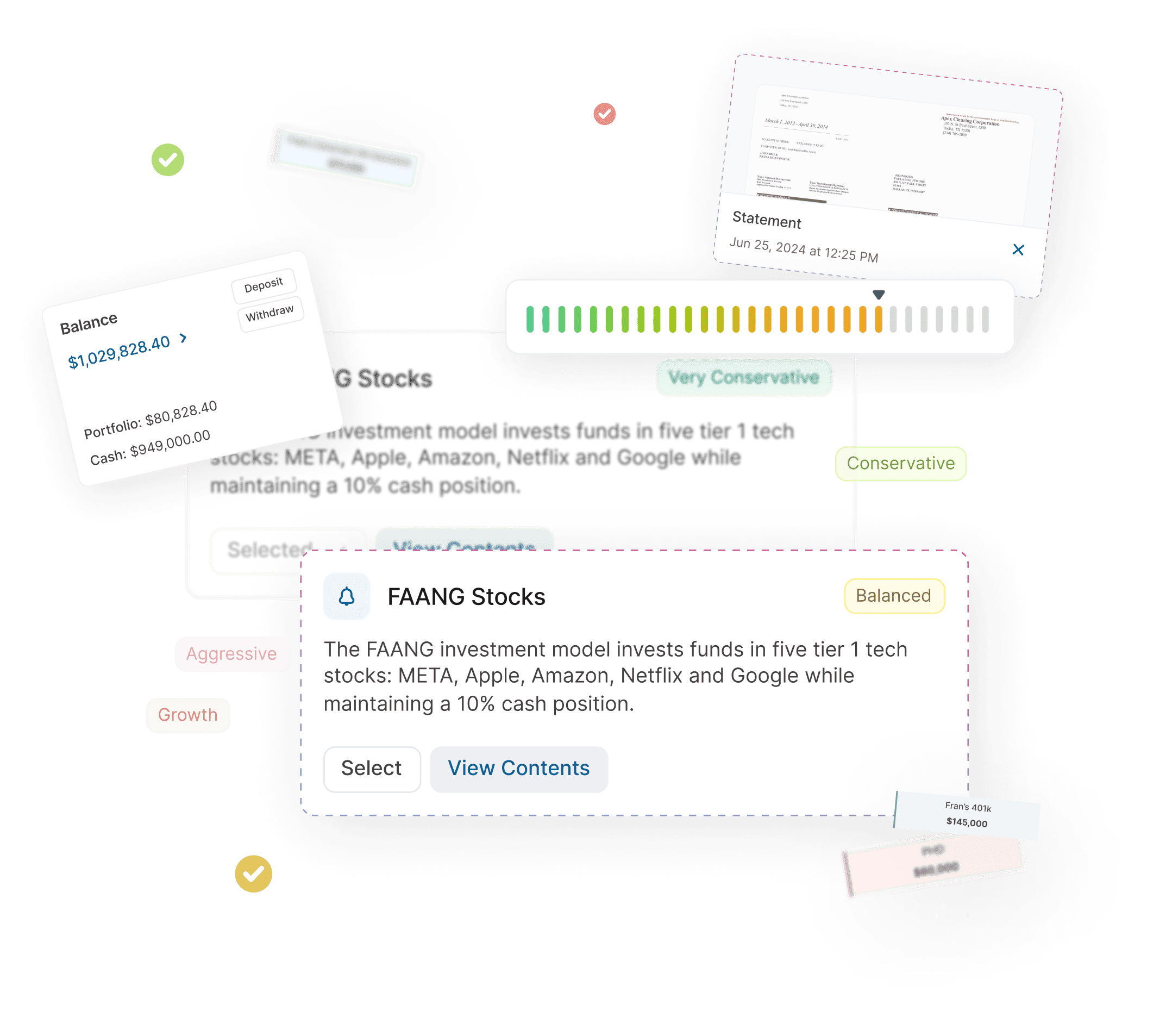30.11.2015

 It’s no secret that investment in FinTech companies has gone parabolic in recent years—jumping more than 3x between 2013 and 2014 to surpass $12 billion—transforming not only the back office functions of the financial services industry, but reinventing how the rest of us interact with our money on a daily basis.
It’s no secret that investment in FinTech companies has gone parabolic in recent years—jumping more than 3x between 2013 and 2014 to surpass $12 billion—transforming not only the back office functions of the financial services industry, but reinventing how the rest of us interact with our money on a daily basis.
Accenture has called FinTech—particularly those startups that deal in consumer lending, payments processing, and commercial lending—one of the most promising industries of 2015, and Goldman Sachs has estimated that startups in the space could eventually siphon off as much as $4.7 billion in annual revenue from the traditional financial services players. Venture investment in the sector grew by more than 200% globally in 2014, compared just 60% in the venture funding space overall, with the size of those first-round checks jumping by an impressive 48% in just one years’ time.
What’s the one thing that might derail the runaway profit train that is financial technology? Government regulation.
The FinTech sector currently enjoys a lighter level of regulation than more traditional financial services providers, in part because the oversight agencies are still trying to sort out just what makes a “FinTech” company a “financial services provider” and how, if at all, they should be handled differently than banks, brokerages and all the rest. This will have implications for not only the established banks, but also online brokers like TD Ameritrade and E*Trade, which straddle the line between traditional financial services firms and FinTech. Even though they’re tech trading platforms, they’re still registered U.S. broker dealers and are, as such, subject to the Securities Exchange Act of 1934 and all of the various rules set out by the Securities and Exchange Commission and the Financial Industry Regulatory Authority.
The concern for many in the larger financial services industry is that FinTech start-ups still aren’t playing by the same rules that the rest of the traditional banking sector has to deal with. That’s given the tech upstarts an effective advantage against their entrenched (and well-funded) competition that has helped them get established, but as the market matures it is starting to look and feel like an unfair advantage.
“We want to make sure we have a level playing field,” Rob Nichols, the president and chief executive of the American Banking Association told CNBC when asked about the potential for FinTech regulation in 2016. “This is a rapidly growing area where people are going to receive their financial products and tools in a very different way. We want it to be more efficient and effective. We need it to be safe and secure … there are cyber implications and security implications.”
For regulators, these new startups are a different animal in large part because they are using technology to beat the banks at their own game, taking their products and services directly to consumers. The questions now are “who should be able to provide financial services or products?” “Can the low start-up costs that have lead to these new businesses exist with compliance costs?” And, “can regulation even keep up with the speed and agility of these new business models?”
“These future issues impacting (the) banking sector are really big and important,” Nichols said. “One is this issue of FinTech and rapid convergence of banking and technology products. You know, I know, that my children are going to receive banking products in a way very differently from the way (we do now). I don’t know exactly what that will look like, but there will be regulatory implications there that we need to think about. This whole issue of mobile, you know there is so much that is going to the phone and to the smartphone. What will that look like in five or 10 years? What impact will that have on the banking sector?”
And with new compliance standards come new risks for all involved, too.
Writing in The Washington Post, author Larry Downes said that many of the traditional financial services companies that he works with have been openly complaining about start-ups in the industry that don’t have to play by the same rules as the rest.
“But as we’ve seen in industries as different as transportation (Uber) and hospitality (Airbnb), it’s a short step from envying the start-ups to applying pressure on the regulators to throw the book at them — even when doing so kills innovation consumers want,” he writes. “Banking incumbents have likewise become adept at turning regulations that slow their own innovation into effective barriers blocking FinTech startups from launching new products and services.”
Of course, not all regulations are bad. They exist for good reasons, are usually drafted with the best of intentions, and, love them or hate them, are simply a fact of life in the financial services industry. FinTech is no exception. (In fact, many FinTech companies have been pushing for increased government oversight of their activities for years, if for no other reason than to remove any potential ambiguity about what changes might be coming.)
Like it or not, increased regulation is on the way.
And the industry knows it. According to a November 2015 survey by Silicon Valley Bank, pending regulation is the number-one concern on the mind of FinTech executives, accounting for 43% of responses.
What they don’t yet know is what those regulations are going to look like or how they will be enforced. The only thing that is clear is that change is coming. There are some educated guesses out there, though.
Here’s what is keeping FinTech leaders up at night:
One of the key advantages that many FinTech companies enjoy is an ability to reach a global customer base and not be limited regionally like a brick-and-mortar bank would have been. This is simply a fact of life on the Internet; your reach is worldwide.
For financial services firms, however, global operations can be an extra headache, introducing differing (and in some case, conflicting) standards between countries and jurisdictions. For years, the answer has been to establish operations in some areas and not in others, simply avoiding the issue.
But FinTech doesn’t have this option, for the most part. Since it can effectively be everywhere it faces tougher hurdles in NOT being everywhere. That’s why many in the industry expect to see new, global standards that apply to financial technology firms in the near future. This would not only clarify what FinTech firms can offer and where, but how regulators across countries deal with these new technologies.
As it stands right now, establishing a new bank or financial services firm in the U.S. is a fairly straightforward process. You identify your market, gather the necessary capital, apply to the necessary regulatory agency and, once approved, open your doors for business.
The trouble for FinTech companies and other nontraditional lenders is that the regulatory step still is not very clear for them. Not only do they know how to shoehorn them into compliance with rules that were not designed with their business models in mind, the regulators don’t know what to do with them when they cross their desks. These new providers don’t fit the traditional mold of what a “bank” or a “financial services provider” should look like, so they can be difficult to regulate under existing rules. This isn’t working for anyone.
The best-case scenario is that this confusion simply delays a FinTech start-up’s application with the agency. Worst case, regulators shut them down before they can even get to work, simply because they do not have a way to understand or rate their business. New, FinTech-specific requirement should help alleviate this hurdle.
Capital levels first came to wide public attention following the 2008 market crash, when government regulators began calling for stricter capital controls and tighter cash-on-hand requirements for the so-called “too big to fail” players. For FinTech companies, however, these requirements don’t exactly make sense.
For example, a bank may be required to hold a certain percentage of its capital in reserves by its regulators in order to prevent it from taking on too much leverage and putting its deposit accounts at risk. But how would these regulations work with a peer-to-peer provider like Lending Club, whose “capital” only really exists in the form of the loans it facilitates between individual lenders and borrowers. Is Lending Club a bank or simply a platform or digital service? Expect clarity on these issues soon.
And of course there are always taxes to think about. In the U.S., banks and financial services firms pay taxes on any income just like any other corporation. The same holds true for FinTech firms—in fact, taxation is one area where fintech is pretty much on the same level as the rest of the industry—which are taxed on their corporate profits.
But, again, the technological business models being created by FinTech firms introduces some confusion. By facilitating loans between private individuals and borrowers, should Lending Club be taxed solely on the fee income it generates (as it is now) or should the investment returns on its platform come into play? Is it a bank or simply a platform?
The FinTech sector will most certainly continue growing in 2016—likely at the same breakneck pace—but what the regulatory landscape surrounding the industry will look like a year from now remains to be seen.
What do you think? What potential regulatory changes do you see for the FinTech sector in 2016 and beyond, and which, if any, concern you the most?
Demo RIA Software
Manage portfolios with advanced rebalancing and real-time insights.
Access customizable client reports and streamlined compliance tools.
Designed for advisors seeking efficient client and portfolio management.


Demo Advanced Trading Platform
Test multi-asset strategies with real-time and historical data.
Analyze market depth, execute complex options, and algorithmic orders.
Ideal for refining strategies and risk management before live trading.


Demo Paper Trading Platform
Practice trading with virtual funds in real market conditions.
Simulate cash, margin, and day-trader accounts to gain experience.
Perfect for honing skills in a risk-free, customizable environment.

